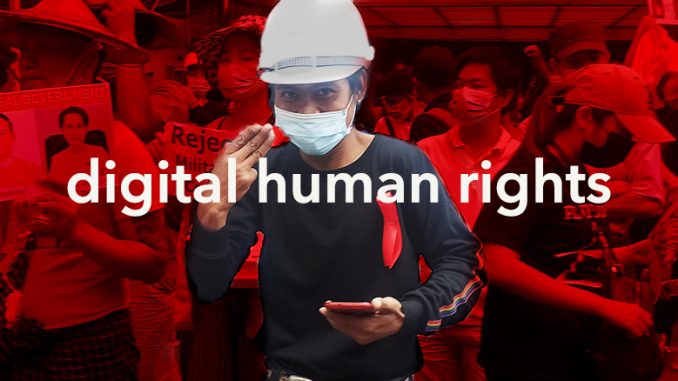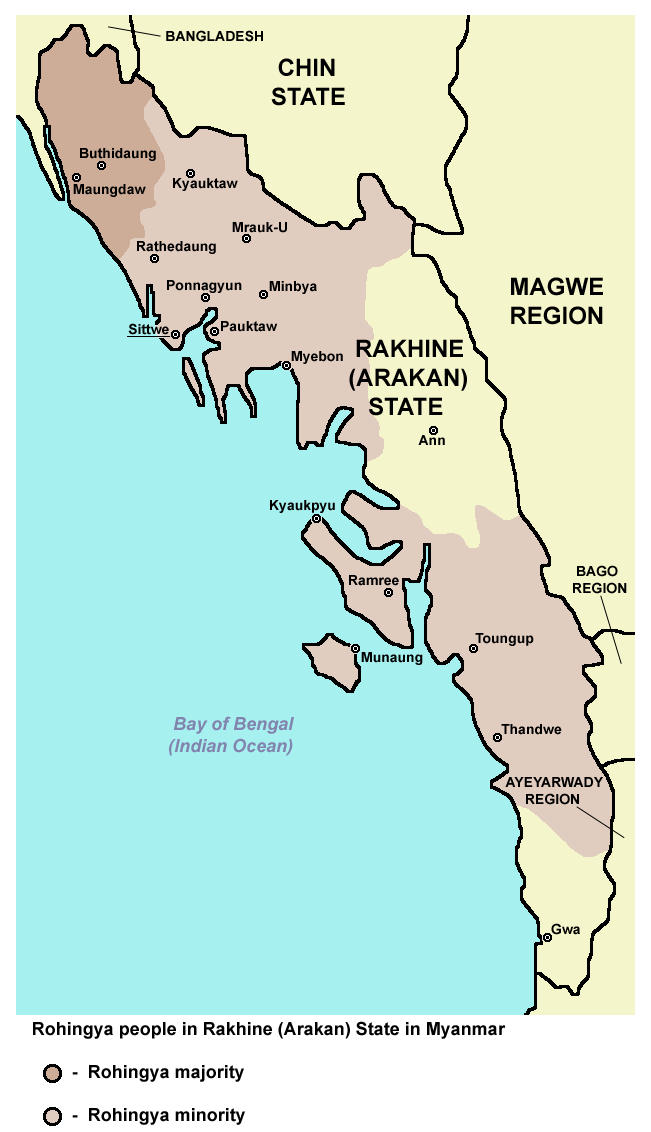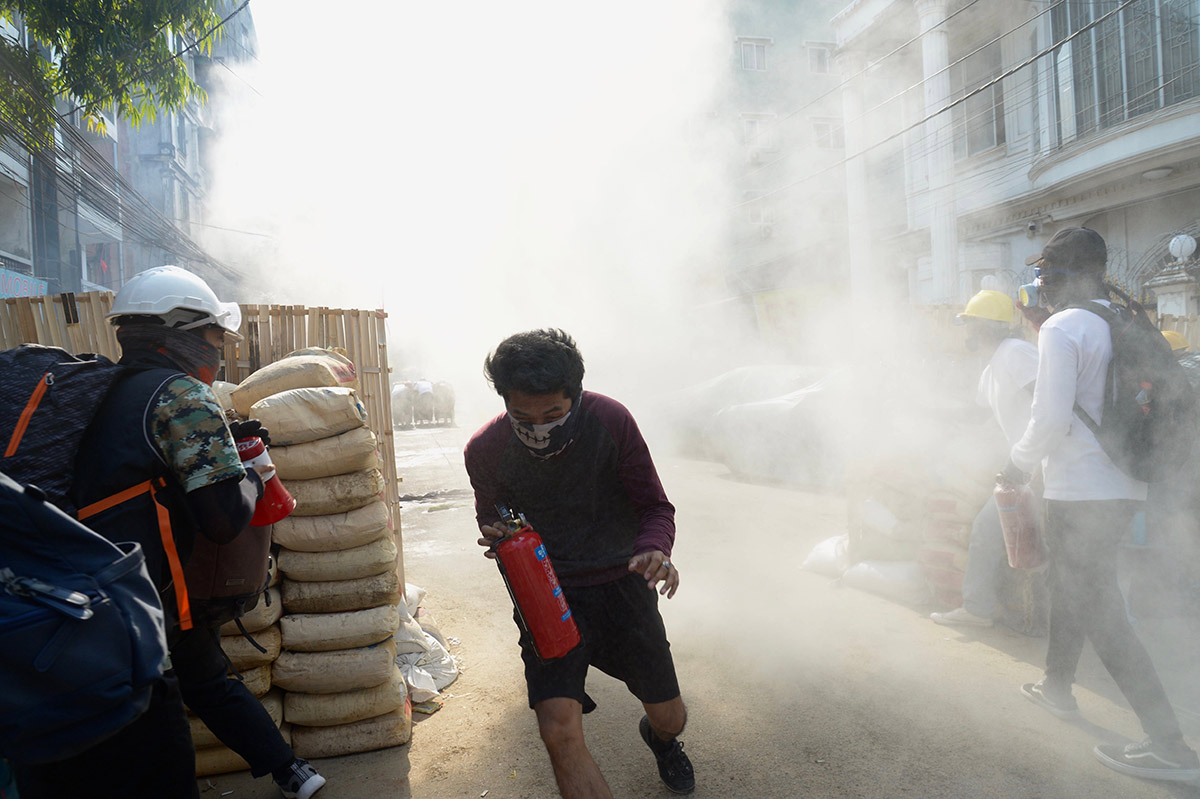
Myanmar is no stranger to authoritarian military rule and accompanying media restrictions but for a brief decade, between 2011 and 2021, it began to emerge from its dark torpor of five decades dominated by dour and censored state broadcasting and newspapers into the twenty-first century world of ubiquitous mobile phones and social media. Mobile phone SIM cards, which cost several thousand dollars in the 2000s under military rule fell to US$1.50 in the second half of 2014 when the first foreign firms started operations in the country. Facebook on mobile phones became the de facto communication tool in the country – leapfrogging email and fixed line phone networks – and also the main source of news (Simpson 2019).
This liberating, but unregulated, media environment had enormous social and economic benefits, but also resulted in the proliferation of hate speech aimed at minorities, particularly the Rohingya (Simpson and Farrelly 2021b). Nevertheless, access to these technologies, accompanied by a decade of political and economic reforms, created a trajectory towards a more open, democratic and transparent society, albeit from a very low base.
This progress came crashing down on 1 February 2021 when the military deposed the National League for Democracy (NLD)-led government, which had been re-elected in a landslide the previous November. That morning, the military arrested State Counsellor Aung San Suu Kyi, the president and other NLD parliamentarians and activists and took over the machinery of government. Mass protests around the country were followed by internet and social media bans and restrictions and widespread repression that constituted war crimes and crimes against humanity (Andrews 2022; Fortify Rights 2022; Human Rights Watch 2021; Simpson 2021a).
A new Cyber Security Law had been in development under the NLD government and the military junta, the State Administration Council (SAC), released a draft for comment soon after the coup. There was significant criticism from business groups and NGOs but a new updated draft, which was distributed in early 2022 was even worse (Free Expression Myanmar 2022). There was vocal domestic and international opposition to the new draft and, at the time of writing (June 2022), the feedback was still being considered by the SAC’s cyber security committee. This article provides a brief history of censorship and media restrictions in Myanmar and analyses the human rights implications of the new draft Cyber Security Law

Censorship Before the 2021 Coup
From a military coup in 1962 until 2011 Myanmar experienced various incarnations of authoritarian military rule. There were no private daily newspapers since private media operators, publishers, musicians and artists were all required to send their works to the Press Scrutiny Board for pre-publication censorship to ensure that they didn’t contain criticism of the military or the government. There were strict limits on what could be published. For instance, after Aung San Suu Kyi rose to prominence during the 1988 national protests, any reference to her in a publication would be ripped out or inked over. Television and news media were largely an organ of the state.
Mobile phones and SIM cards, when available, were hugely expensive. Fixed-line phones were limited in their extent and efficacy and the internet was incredibly slow, expensive and barely used.
In 2010, national elections were held under a new military-authored 2008 Constitution. These were the first elections since those held in 1990, which were won by the NLD but ignored by the military. In 2010 Aung San Suu Kyi was under house arrest and the NLD boycotted the elections. Not surprisingly, therefore, the elections were won by the military-backed USDP led by former general Thein Sein, who became president when the government assumed office in April 2011. More unexpectedly, however, Thein Sein ushered in an era of political and economic reforms that brought Myanmar in from the cold on the global stage.
In August 2012 the government repealed pre-censorship laws and, on 1 April 2013, the first privately-owned daily newspapers in half a century appeared on newsstands. Laws were passed that legalised protest and trade unions. Another new law opened the door to international telecommunications operators and the Qatar-owned Ooredoo and Norwegian-owned Telenor commenced mobile phone operations in August and September 2014, drastically reducing the cost of mobile phone use and significantly increasing national coverage.
Almost overnight, everyone was ‘connected’, and Facebook became the dominant communication platform in the country. The new environment provided enormous social, political and economic benefits but also new opportunities for embryonic and largely unregulated organisations and media outlets to unleash chauvinist vitriol towards ethnic minorities, particularly the Rohingya (Simpson and Farrelly 2021a).
Communal violence had broken out in Rakhine State in 2012, with Rakhine civilians the primary perpetrators of violence against the Rohingya and other Muslim minorities. At the time, stories, rumour and innuendo were largely spread by word of mouth. Online social media provided a far quicker and easier platform for disseminating fake news and hate speech on a national scale, which would have disastrous consequences for the Rohingya in 2017 (Simpson and Farrelly 2020).

Aung San Suu Kyi and the NLD won the 2015 elections and hopes were high that its five-year term would result in a significant further relaxation of political and economic restrictions.
These expectations were dashed, however, as the NLD in government proved as sensitive as the previous government to criticism from journalists or NGOs. It failed to oppose the prosecution under colonial or military era security laws, such as the Official Secrets Act, of Pulitzer Prize-winning journalists highlighting human rights abuses against the Rohingya (Shoon Naing and Lewis 2019). It left more recent retrograde security laws largely intact, including the 2013 Telecommunications Law, section 66(d) of which was used to shut down dissent. Both the NLD government and the military continued to deploy these semi-authoritarian laws to silence their critics (Simpson and Farrelly 2021b).
Furthermore, the NLD government supported internet blackouts in Rakhine State in western Myanmar where the military were in conflict with the ethnic Rakhine Arakan Army. Some of these areas were populated by Rohingya who had been displaced in the 2017 genocide. The blackouts in these areas exacerbated the difficulties facing aid agencies, the media, human rights monitors, and the civilian population in undertaking their legitimate activities (Simpson 2019).
Aung San Suu Kyi’s lack of enthusiasm for supporting the basic tenets of democratic rule, such as a free media, internet access and civil society activism, proved disappointing but she was nevertheless still a democratically elected leader who was responsible to a mostly elected parliament.
This reform era allowed local NGOs such as Phandeeyar, Free Expression Myanmar (FEM), Myanmar ICT Development Organisation and the Myanmar Centre for Business Responsibility to work together to counter internet blackouts and fake news and protect digital rights through events such as the annual Digital Rights Forums (Myanmar Centre for Responsible Business 2020). However, the military coup of 1 February 2021 brought much of this activity to a halt.

Cyber Restrictions Since the Coup
As the coup unfolded, people started to organise against the military on Facebook and other social media and a new civil disobedience page quickly garnered 200,000 followers. As a result, two days after the coup, the military banned Facebook and WhatsApp, which, in Myanmar, was tantamount to banning the internet (Potkin 2021). Two days later, after users flocked to alternative apps to organise and agitate, the military instructed mobile service providers to block access to Twitter and Instagram as well (DW 2021). People in Myanmar have been able to bypass the restrictions on accessing social media apps and websites through the use of Virtual Private Networks (VPNs), which hide data flows and allow people to access blocked content or communicate privately.
Since the coup, the internet and mobile phone networks have been periodically shut down, either across the country or in localised areas, in response to protests and actions by the opposition and to conceal the military’s human rights abuses such as arbitrary arrest, detention and torture (Access Now 2022b; Nachemson 2021).
The junta also revoked the protections that previously existed under the Law Protecting the Privacy and Security of Citizens and ‘removed basic protections including… the right to be free of warrantless surveillance and search and seizure’ (International Commission of Jurists and Human Rights Watch 2021).
It ordered telecoms operators, including Telenor and Ooroodoo, to hand over customer data and install technology to allow the monitoring of users. Telenor, generally considered the most progressive mobile phone operator, announced that it would leave the country in mid-2021 since the new requirements breached European laws and made operating difficult (Potkin and Mcpherson 2021).
While activists argued against international companies doing business in Myanmar, Telenor faced pressure to stay in the country since, as the only Western-owned mobile phone network, it was the one activists predominantly used. In the end it was bought by the Lebanon-based investor M1 Group who were required to partner with a local investor. Military-linked Shwe Byain Phyu became the new majority owner and the company re-launched in June 2022 as ATOM. While ATOM announced that ‘users will be protected in accordance with domestic law and international law for personal security’, the problem is that the junta has required mobile phone networks to compromise users’ security by handing over their data and monitoring their activities (Bangkok Post 2021; Eleven 2022; Justice for Myanmar 2022).

The Draft Cyber Security Law
Following the issue of the draft Cyber Security Law immediately after the coup, the SAC issued a revised draft for comment in January 2022 (State Administration Council 2022). The problems with the new draft quickly became evident, since none of the issues with the previous draft had been addressed and more restrictions had been added. The proposed law breached virtually all internationally recognised digital rights with no right to privacy and arbitrary and ad hoc decisions and penalties built into the system. The law would allow the SAC to access user data, block websites, order internet shutdowns and prosecute critics who would have little legal recourse (Access Now 2022a; Human Rights Watch 2022; Myanmar Centre for Responsible Business 2022).
Key new provisions in the updated draft criminalised the use of VPNs, abolished the need for objective proof during trials and effectively required online service providers to block or remove online criticism of the SAC, its leaders and members of the military.
A joint statement by ten international chambers of commerce in January 2022 argued that the proposed law,
disrupts the free flow of information and directly impacts businesses’ abilities to operate legally and effectively in Myanmar … VPNs are a legitimate security device that protect businesses against cyber and financial crimes.
VPNs have also been the most useful tool for activists, and the general population, to bypass restrictions on the use of websites and apps, such as Facebook and Twitter, to communicate and share independent news and information, which is clearly the junta’s rationale for the ban.
Most breaches of the draft law would result in punishment of up to three years imprisonment and a fine. This includes not only the use of VPNs, but the act of encouraging anyone to use a VPN, which could include phone shops that install VPNs, media outlets and civil society organisations who promote VPN use or digital rights defenders who give security training (Free Expression Myanmar 2022).
Prohibited content in the draft law includes ‘misinformation and disinformation’ and information ‘disrupting unity, stabilization and peace’. The military has a history of outlawing vague crimes such as ‘disrupting unity’ and they now appear to be embedding them into the digital realm as a catch-all for targeting democracy or human rights activists.
Dozens of domestic and international civil society groups, including Article 19 and PEN America, have signed a statement condemning the ‘digital coup’, as the junta abuses human rights with impunity (Joint Civil Society Statement 2022).
In the absence of a parliament to scrutinise legislation the military junta has free rein to install any such legislation, no matter how heinous, as law, although the illegality of the coup ultimately renders any law that the SAC purportedly passes illegitimate (Simpson 2021b). The international community should urgently provide more material and diplomatic support for those opposing the coup and the junta, including the National Unity Government (Simpson 2021c), to support the fight for justice and help protect digital human rights in the country and beyond.
Adam Simpson
Senior Lecturer, International Studies, Justice & Society, University of South Australia
References
Access Now (2022a). Analysis: The Myanmar junta’s Cybersecurity Law would be a disaster for human rights. https://www.accessnow.org/analysis-myanmar-cybersecurity-law/. Updated: 27 January. Accessed: 12 June 2022.
Access Now (2022b). Update: Internet access, censorship, and the Myanmar coup. https://www.accessnow.org/update-internet-access-censorship-myanmar/. Updated: 18 March. Accessed: 10 June 2022.
Andrews, T. (2022). ‘UN expert: Myanmar people betrayed with ‘vague declarations’ and ‘tedious, endless wait’ for action.’ The Office of the High Commissioner for Human Rights. Geneva. 21 March. https://www.ohchr.org/en/press-releases/2022/03/un-expert-myanmar-people-betrayed-vague-declarations-and-tedious-endless. Accessed:10 June 2022.
Bangkok Post (2021, 9 July). ‘Telenor announces Myanmar exit.’ Bangkok Post. https://www.bangkokpost.com/business/2145843/telenor-announces-myanmar-exit. Accessed:11 June 2022.
DW (2021, 5 February). ‘Myanmar blocks Twitter amid outrage at coup.’ DW. https://www.dw.com/en/myanmar-blocks-twitter-amid-outrage-at-coup/a-56477238. Accessed:10 June 2022.
Eleven (2022, 10 June). ‘Atom says it will invest US$ 330 M over the next three years and protect individual security in accordance with local and international laws.’ Eleven. https://elevenmyanmar.com/news/atom-says-it-will-invest-us-330-m-over-the-next-three-years-and-protect-individual-security-in. Accessed:12 June 2022.
Fortify Rights (2022). “Nowhere is Safe”: The Myanmar Junta’s Crimes Against Humanity Following the Coup d’État.). 24 March. https://www.fortifyrights.org/mya-inv-2022-03-24/. Accessed:11 June 2022.
Free Expression Myanmar (2022). Military’s cyber security bill worse than their previous draft. https://freeexpressionmyanmar.org/militarys-cyber-security-bill-worse-than-their-previous-draft/. Updated: 27 January. Accessed: 10 June 2022.
Human Rights Watch (2021). Myanmar: Coup Leads to Crimes Against Humanity. (Human Rights Watch, New York). 31 July. https://www.hrw.org/news/2021/07/31/myanmar-coup-leads-crimes-against-humanity. Accessed:9 August 2021.
Human Rights Watch (2022). Myanmar: Scrap Draconian Cybersecurity Bill. https://www.hrw.org/news/2022/02/15/myanmar-scrap-draconian-cybersecurity-bill. Updated: 15 February. Accessed: 10 June 2022.
International Commission of Jurists and Human Rights Watch (2021). Myanmar: Post-Coup Legal Changes Erode Human Rights. (International Commission of Jurists and Human Rights Watch). 2 March. https://www.icj.org/myanmar-post-coup-legal-changes-erode-human-rights/. Accessed:11 June 2022.
Joint Civil Society Statement (2022). ‘Resist Myanmar’s digital coup: Stop the military consolidating digital control.’ Access Now. 8 February. https://www.accessnow.org/myanmars-digital-coup-statement/. Accessed:11 June 2022.
Justice for Myanmar (2022). Shwe Byain Phyu’s military links exposed. https://www.justiceformyanmar.org/stories/shwe-byain-phyus-military-links-exposed. Updated: 13 February. Accessed: 11 June 2022.
Myanmar Centre for Responsible Business (2020). Digital Rights Forum. https://www.myanmar-responsiblebusiness.org/dialogues/digital-rights-forum/. Updated: 29 February. Accessed: 10 June 2022.
Myanmar Centre for Responsible Business (2022). Update on Draft Cybersecurity Law and its Impacts on Digital Rights and the Digital Economy. https://www.myanmar-responsiblebusiness.org/news/draft-cybersecurity-law.html. Updated: 15 February. Accessed: 10 June 2022.
Nachemson, A. (2021, 4 March). ‘Why is Myanmar’s military blocking the internet?’ Al Jazeera. https://www.aljazeera.com/news/2021/3/4/myanmar-internet-blackouts. Accessed:10 June 2022.
Potkin, F. (2021, 5 February). ‘Facebook faces a reckoning in Myanmar after blocked by military.’ Reuters. https://www.reuters.com/article/us-myanmar-politics-facebook-focus-idUSKBN2A42RY. Accessed:10 June 2022.
Potkin, F. and P. Mcpherson (2021, 19 May). ‘How Myanmar’s military moved in on the telecoms sector to spy on citizens.’ Reuters. https://www.reuters.com/world/asia-pacific/how-myanmars-military-moved-telecoms-sector-spy-citizens-2021-05-18/. Accessed:12 June 2022.
Shoon Naing and S. Lewis (2019, 23 April). ‘Myanmar’s top court rejects final appeal by jailed Reuters journalists.’ Reuters. https://www.reuters.com/article/us-myanmar-journalists/myanmars-top-court-rejects-final-appeal-by-jailed-reuters-journalists-idUSKCN1RZ06O. Accessed:29 December 2019.
Simpson, A. (2019). ‘Facebook, the Rohingya, and internet blackouts in Myanmar.’ The Interpreter. The Lowy Institute. 21 October. https://www.lowyinstitute.org/the-interpreter/facebook-rohingya-and-internet-blackouts-myanmar. Accessed:10 June 2022.
Simpson, A. (2021a). ‘Coups, conflicts, and COVID-19 in Myanmar: Humanitarian intervention and responsibility to protect in intractable crises.’ Brown Journal of World Affairs, 28(1): 1-19.
Simpson, A. (2021b). ‘Myanmar: Calling a coup a coup.’ The Interpreter. The Lowy Institute. 8 February. https://www.lowyinstitute.org/the-interpreter/myanmar-calling-coup-coup. Accessed:9 August 2021.
Simpson, A. (2021c). ‘Myanmar’s exile government signs up to ICC prosecutions.’ East Asia Forum. 17 September. https://www.eastasiaforum.org/2021/09/17/myanmars-exile-government-signs-up-to-icc-prosecutions/. Accessed:24 September 2021.
Simpson, A. and N. Farrelly (2020). ‘The Rohingya crisis and questions of accountability.’ Australian Journal of International Affairs, 74(5): 486-94.
Simpson, A. and N. Farrelly (2021a). ‘Interrogating Contemporary Myanmar: The Difficult Transition.’ in A. Simpson and N. Farrelly (eds), Myanmar: Politics, Economy and Society. (London and New York: Routledge): 1-12.
Simpson, A. and N. Farrelly (2021b). ‘The Rohingya Crisis: Nationalism and its Discontents.’ in A. Simpson and N. Farrelly (eds), Myanmar: Politics, Economy and Society. (London and New York: Routledge): 249-64.
State Administration Council (2022). Cyber Security Law [Draft – Unofficial English Translation by Free Expression Myanmar]. (SAC, Naypyitaw, Myanmar).
